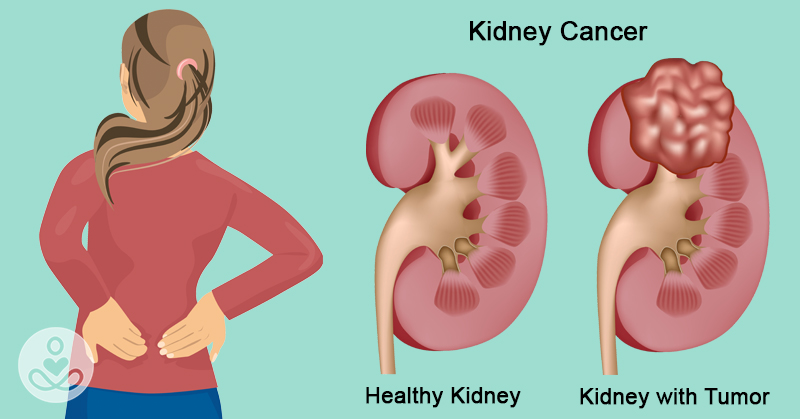Your kidneys are a pair of small bean-shaped organs located in the middle of your back which also just happen to be one of the most important organs responsible for detoxing the body. The kidneys remove waste and extra water from the blood to form urine. If your kidneys were not able to do their job these waste products would build up in the blood and cause damage to your body. One serious disease that can affect the kidney and its ability to function is cancer.
Early detection is key to surviving cancer
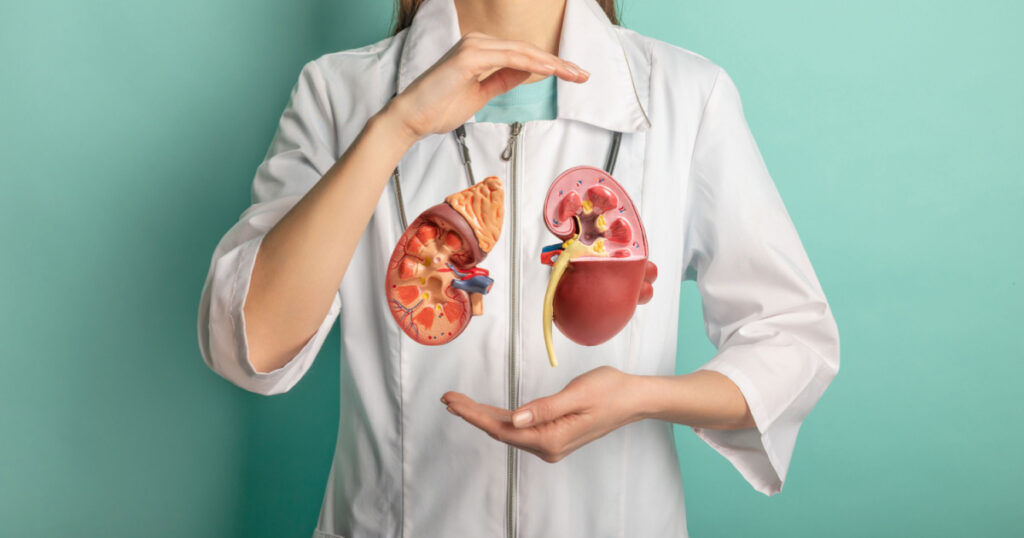
Kidney cancer is not one of the most talked about forms of malignancy, however, the American Cancer Society estimates that in 2016 there will be almost 63,000 new cases in the U.S. alone. Survival rates for kidney cancer have improved over the last two decades, but 1/5 of those diagnosed will still die from the disease. Patients diagnosed with kidney cancer at the earliest stage can expect an optimistic 81% 5-year survival rate. Once cancer has reached an advanced stage, however, the survival rate drops significantly to a dismal 8%. Knowing the most common signs and symptoms associated with kidney cancer allows an individual to seek out medical care as early as possible.
Read: 7 Warning Signs of Hand-Foot-and-Mouth Disease Parents Need to Look Out For
The symptoms associated with kidney cancer can include:
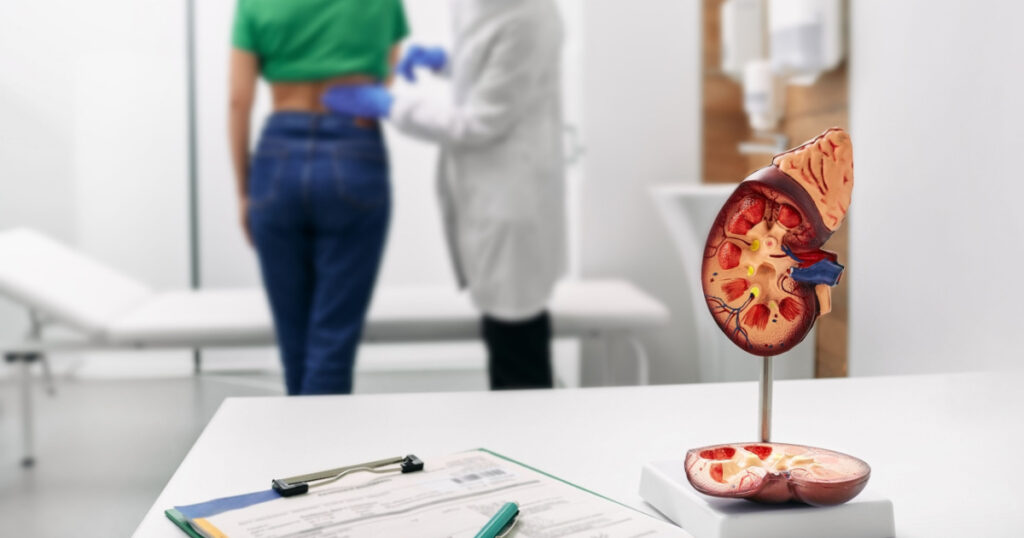
- Blood in urine (early on you may not see blood, but you can screen for microscopic blood through a urinalysis at your doctor’s office)
- Unexplainable and quick weight loss
- Chronic fatigue
- Fever, unrelated to an illness
- A lump in the abdominal region
- Persistent pain along the abdominal side
- Back pain, unrelated to an injury
6 Tips To Help Prevent Kidney Cancer
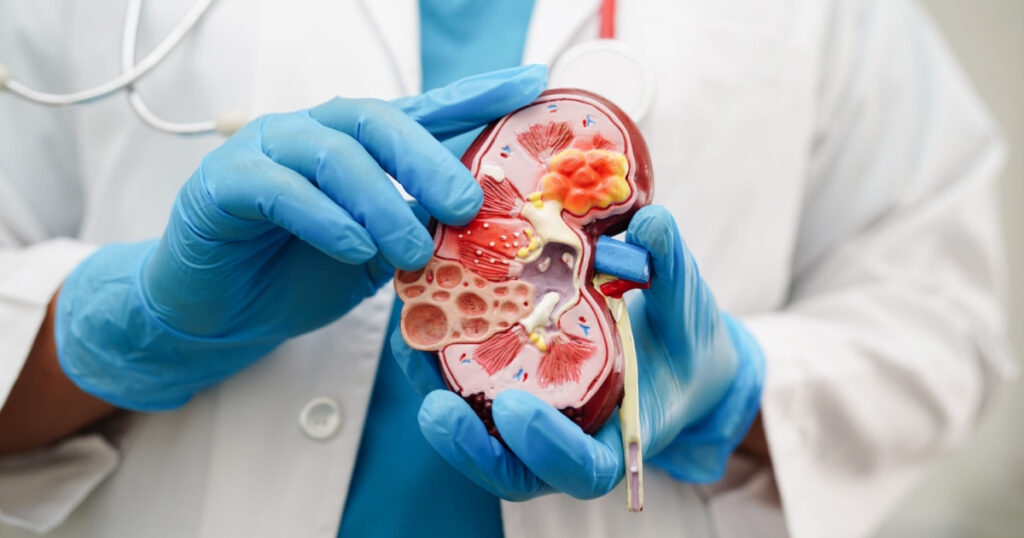
We often focus on early detection when discussing cancer but the equally important and possibly more empowering conversation is around prevention. So what can you do to optimize your body’s ability to prevent kidney cancer? The good news is… a lot! There are many lifestyle factors, habits, or exposures that contribute to the development of chronic diseases including cancer. Luckily if we are aware there are things we can do to reduce our risk of disease, we can make changes before disease develops to promote health and prevent diseases including cancer. Below We’ve listed a few action items you can implement to dramatically reduce your likelihood of developing kidney cancer and other chronic illnesses.
1. Quit Smoking and Avoid Smoke Exposure
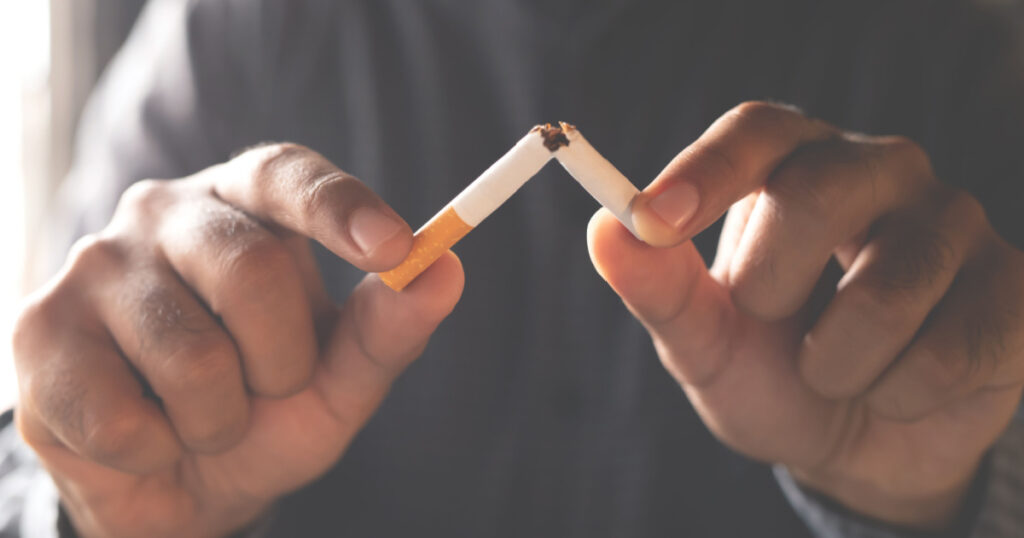
We know smoking is bad, but it also increases the risk of renal cancer. Of the 250 harmful chemicals contained in cigarette smoke, there are 69 known to cause cancer. The risk also increases with the number of cigarettes that you smoke, doubling the risk in people who smoke 20 or more cigarettes daily. The good news is your risk falls if you stop smoking and after 10 years your risk of developing kidney cancer is the same as a nonsmoker.
2. Maintain a Healthy Body Weight
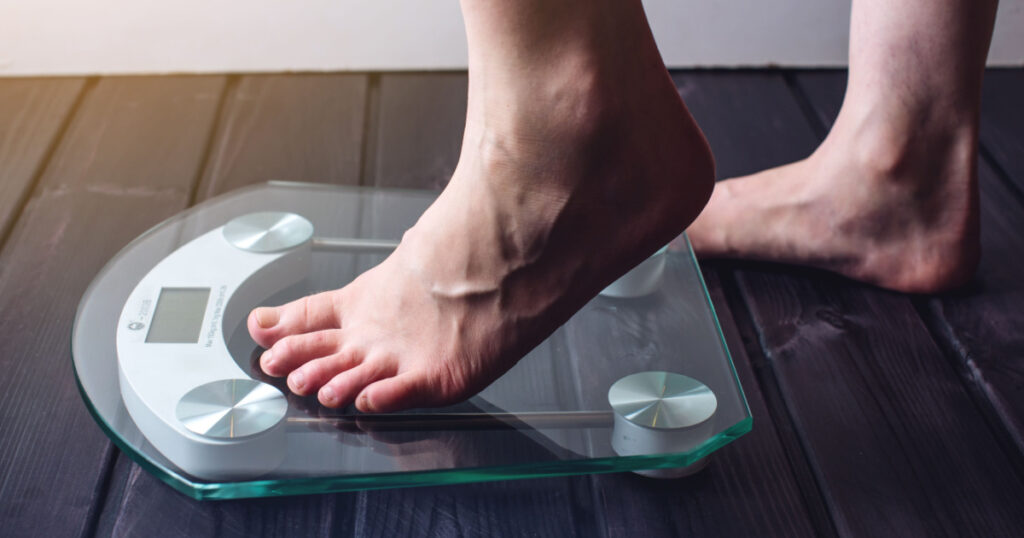
Close to 40% of people who develop kidney cancer are obese. One cancer research study found that being overweight or obese causes around a quarter of kidney cancers. Your body mass index (BMI) can be calculated by comparing your height and weight. Strive to keep your BMI less than 30 to cut your risk of cancer and many other chronic diseases.
Read: 6 Warning Signs You Don’t Have Enough Oxygen in Your Blood
3. Avoid Environmental Chemicals
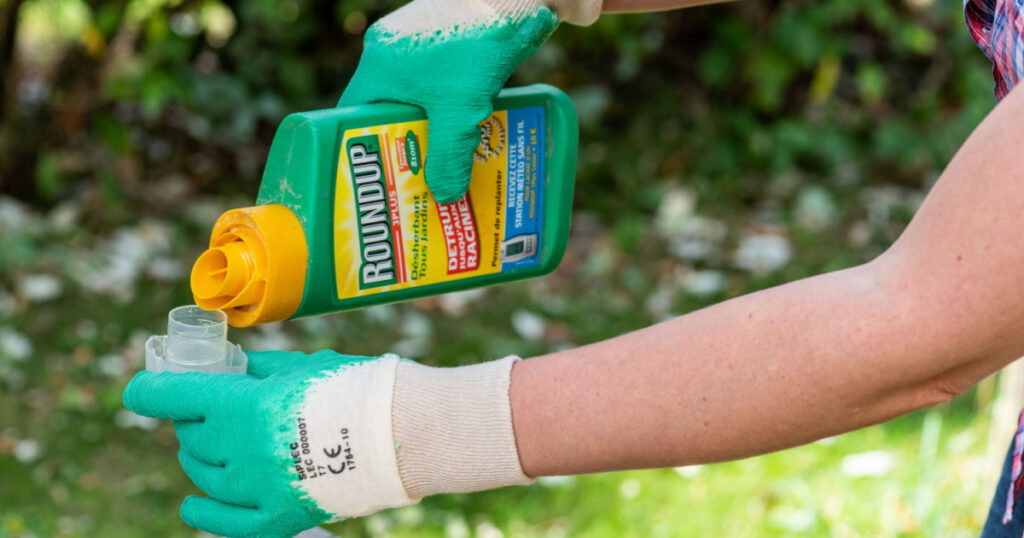
Various chemicals have been shown to increase the risk of kidney cancer. These include cadmium (found in cigarette smoke, fossil fuel burning, and smelting); herbicides (Round-up); and organic solvents like trichloroethylene (refrigerants, rug cleaners). Whenever possible, strive to reduce exposure to environmental chemicals. Choose organic cleaners, natural pesticides, and clean burning fuel sources.
4. Lower Your Blood Pressure
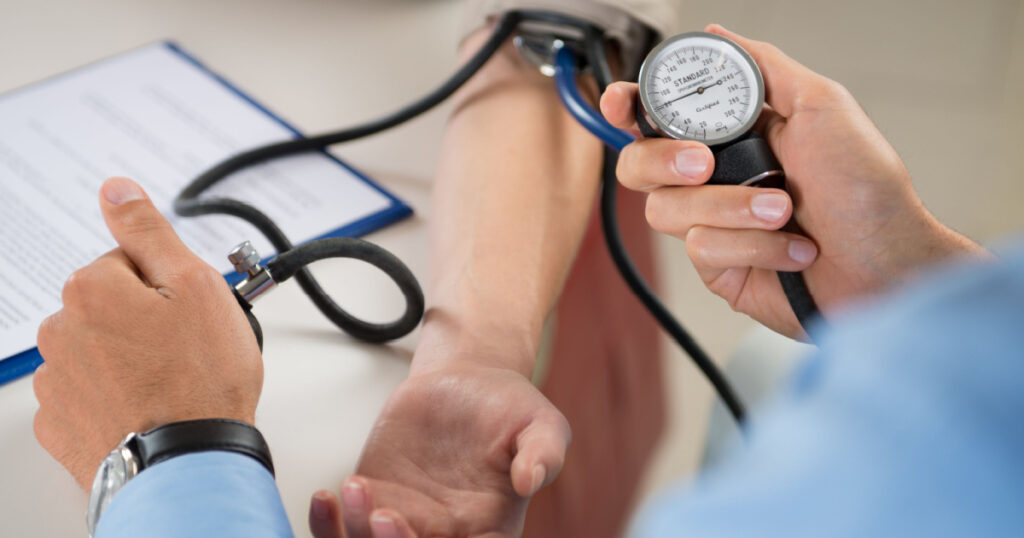
There have been studies linking kidney cancer to both elevated blood pressure and the medications we use to lower blood pressure, like diuretics. It is advisable to implement lifestyle factors you can control, like a healthy diet and exercise to lower your blood pressure without medications when possible. If you need medications to control your blood pressure, talk to your doctors about your medication options, but generally, it is advisable to continue your medications if needed.
5. Get Moving

Those who lead a sedentary lifestyle are at higher risk of developing cancer. They are also more likely to be obese and have hypertension. Strive to get 150 minutes of moderate-intensity aerobic exercise per week. Examples of aerobic activity include walking, biking, swimming, hiking, dancing… Do you get the idea?!?
6. Eat Colorful Fruits and Vegetables
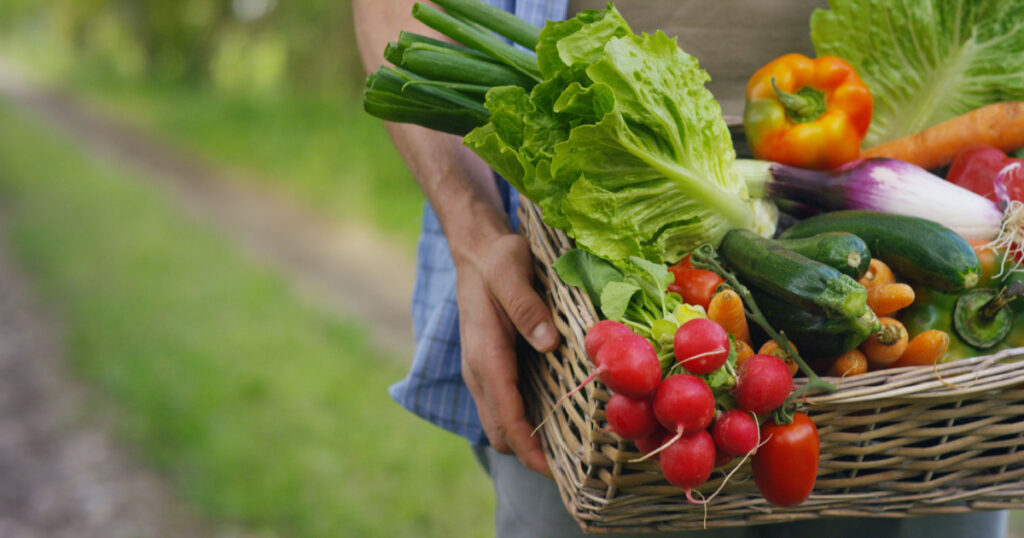
It is well established that the antioxidants found in fruits and vegetables are protective against the development of cancer. Set a goal to consume a minimum of 5 bright colored fruits and vegetables each day and opt for organic when possible. We may not be able to alter the genes we inherit, but we can change the environment we expose our genes to. Removing things that pose a risk to the body and giving your cells what they need to function normally is the best way to prevent cancer and chronic disease.
Keep Reading: 10 Warning Signs You Have A Wheat Intolerance – And What To Eat Instead
Sources:
www.webmd.com/a-to-z-guides/function-kidneys
www.cancer.org/cancer/kidneycancer/detailedguide/kidney-cancer-adult-survival-rates
www.cancer.org/cancer/kidneycancer/detailedguide/kidney-cancer-adult-risk-factors
www.cancer.gov/about-cancer/causes-prevention/risk/tobacco/cessation-fact-sheet
